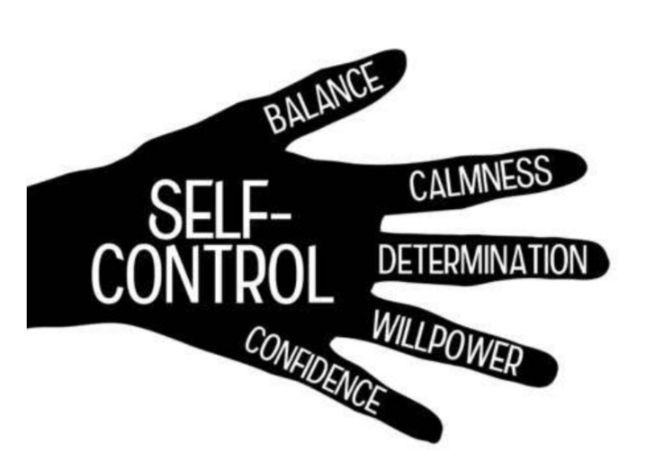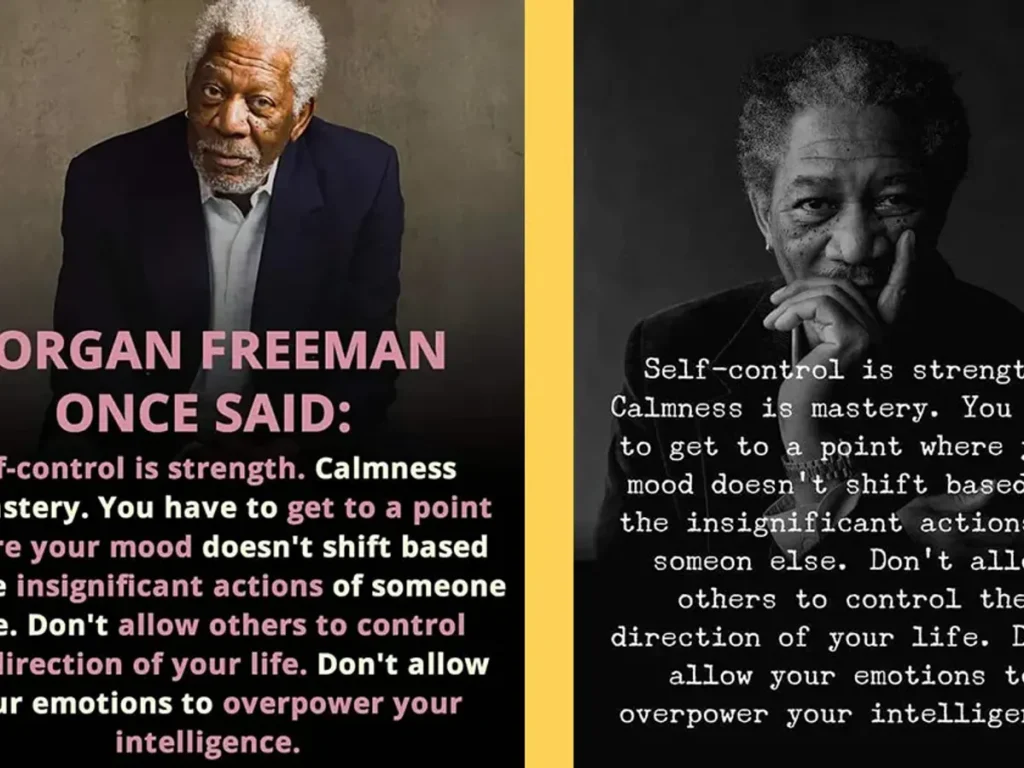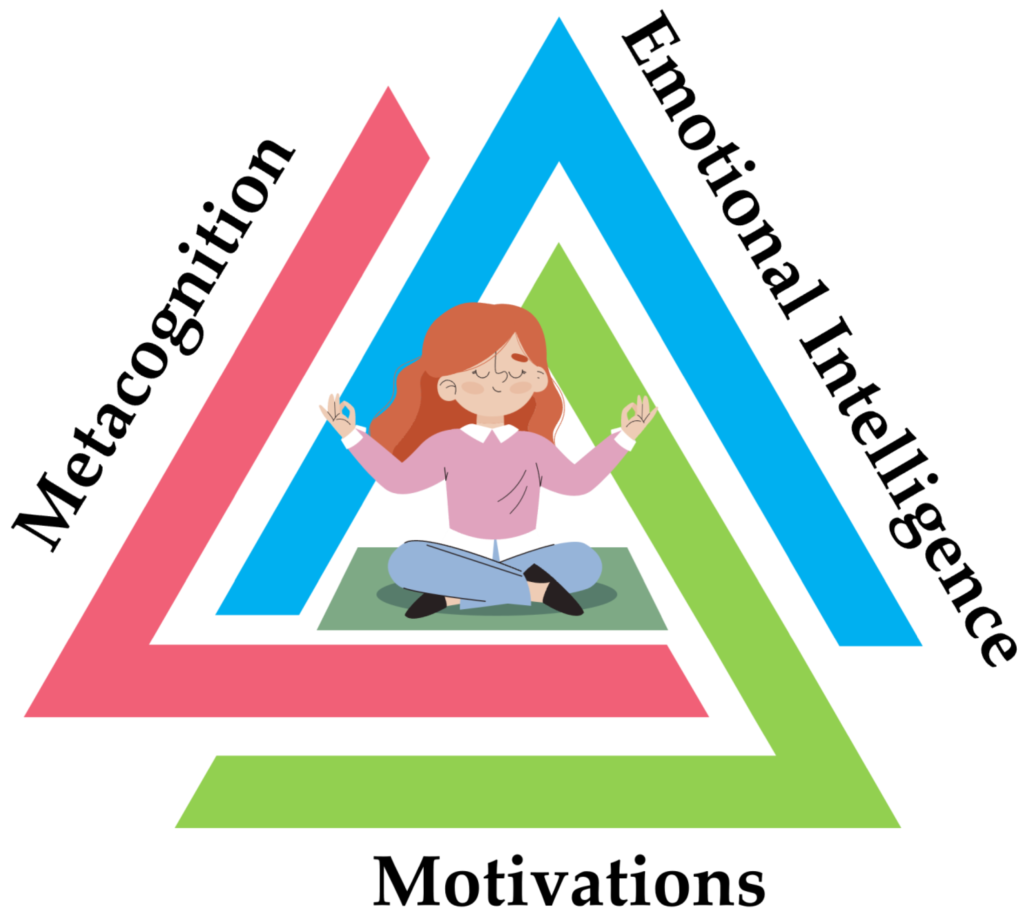In today’s fast-paced world, the ability to remain calm and exercise self-control is more crucial than ever. As Tymoff profoundly states, “Self-control is strength. Calmness is mastery. You.” This philosophy encapsulates the essence of personal development, urging individuals to harness inner strength and maintain composure. Let’s delve into this philosophy and explore how self-control and calmness can transform your life.
Understanding Self-Control
Definition and Importance
Self-control refers to the ability to regulate one’s emotions, thoughts, and behaviors in the face of temptations and impulses. It’s about making conscious decisions rather than reacting impulsively. The importance of self-control cannot be overstated; it’s a fundamental aspect of emotional intelligence and personal development.
Historical Perspectives on Self-Control
Historically, self-control has been revered as a virtue. Ancient philosophers like Aristotle and Confucius emphasized its role in achieving moral excellence and personal harmony. Their teachings remain relevant, reminding us that self-discipline is key to a fulfilling life.
Modern-Day Relevance
In the modern era, self-control is just as essential. It influences various aspects of life, including academic success, career advancement, and personal relationships. With distractions at every corner, the ability to stay focused and disciplined is a significant advantage.
The Science Behind Self-Control
Psychological Insights
Psychologically, self-control is linked to the concept of delayed gratification. The famous “marshmallow test” demonstrated that children who could wait for a larger reward tended to have better life outcomes. This study highlights the long-term benefits of self-discipline.
Neuroscience and Self-Control
Neuroscience reveals that self-control involves the prefrontal cortex, the brain area responsible for decision-making and impulse control. Strengthening this part of the brain through practices like meditation can enhance one’s ability to exercise self-control.

Benefits of Practicing Self-Control
Practicing self-control offers numerous benefits, including improved focus, better decision-making, and enhanced emotional stability. It enables individuals to pursue long-term goals and maintain healthy habits, contributing to overall well-being.
Techniques to Enhance Self-Control
Mindfulness and Meditation
Mindfulness and meditation are powerful tools for enhancing self-control. They help individuals become more aware of their thoughts and emotions, allowing for better regulation of impulses.
Cognitive Behavioral Techniques
Cognitive Behavioral Techniques (CBT) involve identifying and challenging irrational thoughts. By restructuring negative thought patterns, individuals can improve their self-control and make more rational decisions.
Setting Goals and Prioritizing
Setting clear goals and prioritizing tasks can significantly enhance self-control. Breaking down larger goals into manageable steps and focusing on one task at a time prevents overwhelm and promotes steady progress.
Calmness: A Companion to Self-Control
What is Calmness?
Calmness is the state of being free from agitation or strong emotions. It’s about maintaining a peaceful mind even in stressful situations. Calmness is not about ignoring problems but facing them with a clear and composed mind.
The Relationship Between Calmness and Self-Control
Calmness and self-control are deeply interconnected. A calm mind enables better self-control, and practicing self-control fosters a sense of calm. Together, they create a virtuous cycle that enhances overall well-being.

Case Studies on Calmness and Decision-Making
Several case studies demonstrate the impact of calmness on decision-making. For instance, leaders who remain calm under pressure are better equipped to make thoughtful decisions, leading to more successful outcomes.
Cultivating Calmness in Daily Life
Techniques to Achieve Calmness
Achieving calmness involves practices such as deep breathing, progressive muscle relaxation, and visualization. These techniques help reduce stress and promote a sense of inner peace.
The Role of Environment in Maintaining Calmness
Your environment plays a crucial role in maintaining calmness. Creating a serene space with minimal distractions can enhance your ability to stay calm and focused.
Personal Stories of Transformation
Many individuals have transformed their lives by cultivating calmness. Personal stories often highlight the dramatic improvements in mental clarity, emotional stability, and overall happiness that come with mastering calmness.
Challenges in Developing Self-Control and Calmness
Common Obstacles
Developing self-control and calmness is not without challenges. Common obstacles include stress, fatigue, and external pressures. Recognizing these challenges is the first step toward overcoming them.
Strategies to Overcome Challenges
Strategies to overcome these challenges include establishing a routine, seeking support from others, and practicing self-compassion. These approaches can help individuals stay on track even when faced with difficulties.
Maintaining Progress
Maintaining progress requires ongoing effort and dedication. Regularly reviewing goals, celebrating small victories, and adjusting strategies as needed can help sustain growth in self-control and calmness.

The Tymoff Approach
Core Principles
Tymoff’s approach to self-control and calmness is rooted in simplicity and practicality. The core principles emphasize consistent practice, mindfulness, and a balanced lifestyle.
Unique Methods
Tymoff introduces unique methods such as “micro-meditations” and “calmness checkpoints” throughout the day. These techniques are designed to integrate easily into daily routines, making them accessible and effective.
Success Stories
Numerous success stories attest to the effectiveness of Tymoff’s methods. Individuals from various backgrounds have achieved remarkable improvements in their personal and professional lives by adopting these practices.
Self-Control and Calmness in Professional Life
Importance in the Workplace
In the workplace, self-control and calmness are invaluable. They enhance productivity, foster positive relationships, and contribute to a harmonious work environment.
Leadership and Self-Control
Effective leaders exhibit high levels of self-control. They manage their emotions, make rational decisions, and inspire their teams through calm and steady leadership.
Conflict Resolution
Calmness plays a crucial role in conflict resolution. Staying composed during disputes allows for clear communication and finding mutually beneficial solutions.

Self-Control and Calmness in Personal Relationships
Enhancing Communication
Self-control and calmness enhance communication by promoting active listening and thoughtful responses. This leads to deeper and more meaningful connections.
Building Stronger Bonds
Practicing self-control and calmness helps build trust and respect in relationships. It shows commitment to maintaining harmony and resolving conflicts amicably.
Resolving Conflicts
Conflict resolution becomes more effective with self-control and calmness. These qualities enable individuals to approach disagreements with empathy and a focus on solutions rather than blame.
The Role of Self-Control and Calmness in Health and Wellness
Mental Health Benefits
Self-control and calmness are essential for mental health. They reduce stress, anxiety, and depression, contributing to a more balanced and positive mindset.
Physical Health Correlations
The benefits extend to physical health as well. Practices that enhance self-control and calmness, such as meditation and regular exercise, have been shown to lower blood pressure, improve sleep, and boost immune function.
Long-Term Wellness Strategies
Incorporating self-control and calmness into long-term wellness strategies involves creating sustainable habits. Regular practice of relaxation techniques, mindful eating, and maintaining a balanced lifestyle are key components.
Technological Aids in Building Self-Control and Calmness
Apps and Tools
There are numerous apps and tools designed to help individuals build self-control and calmness. Apps like Headspace and Calm offer guided meditations, while productivity tools like Trello can help with goal setting and task management.
Digital Detox Strategies
Engaging in digital detox strategies, such as setting screen time limits and taking regular breaks from devices, can enhance focus and reduce stress, supporting the development of self-control and calmness.
Online Communities and Support Groups
Online communities and support groups provide a platform for sharing experiences and gaining support from others on a similar journey. These networks can be invaluable resources for motivation and accountability.

The Future of Self-Control and Calmness Practices
Emerging Trends
Emerging trends in self-control and calmness practices include the integration of virtual reality for immersive meditation experiences and the use of AI-driven apps for personalized coaching.
Research and Innovations
Ongoing research continues to uncover new insights into the benefits and mechanisms of self-control and calmness. Innovations in neuroscience and psychology are paving the way for more effective techniques.
Global Impact
The global impact of promoting self-control and calmness is significant. These practices contribute to healthier societies, improved mental health outcomes, and a more peaceful world.
Conclusion
In conclusion, self-control and calmness are powerful attributes that can transform your life. Tymoff’s philosophy of “Self-control is strength. Calmness is mastery. You.” serves as a guiding principle for achieving personal and professional success. By understanding and implementing the techniques discussed, you can cultivate these qualities and enjoy the numerous benefits they offer.
FAQs
How Can I Start Practicing Self-Control?
Begin by setting small, achievable goals and gradually increase the difficulty. Incorporate mindfulness practices and regularly reflect on your progress.
What Are the Quickest Ways to Achieve Calmness?
Quick ways to achieve calmness include deep breathing exercises, progressive muscle relaxation, and short mindfulness breaks throughout the day.
Can Technology Help in Building Self-Control?
Yes, technology can be a valuable aid. Apps for meditation, goal tracking, and productivity can help you develop and maintain self-control.
How Does Self-Control Affect Personal Relationships?
Self-control enhances personal relationships by improving communication, fostering trust, and enabling effective conflict resolution.
What Are the Long-Term Benefits of Self-Control and Calmness?
The long-term benefits include improved mental and physical health, greater life satisfaction, better decision-making, and stronger personal and professional relationships.
